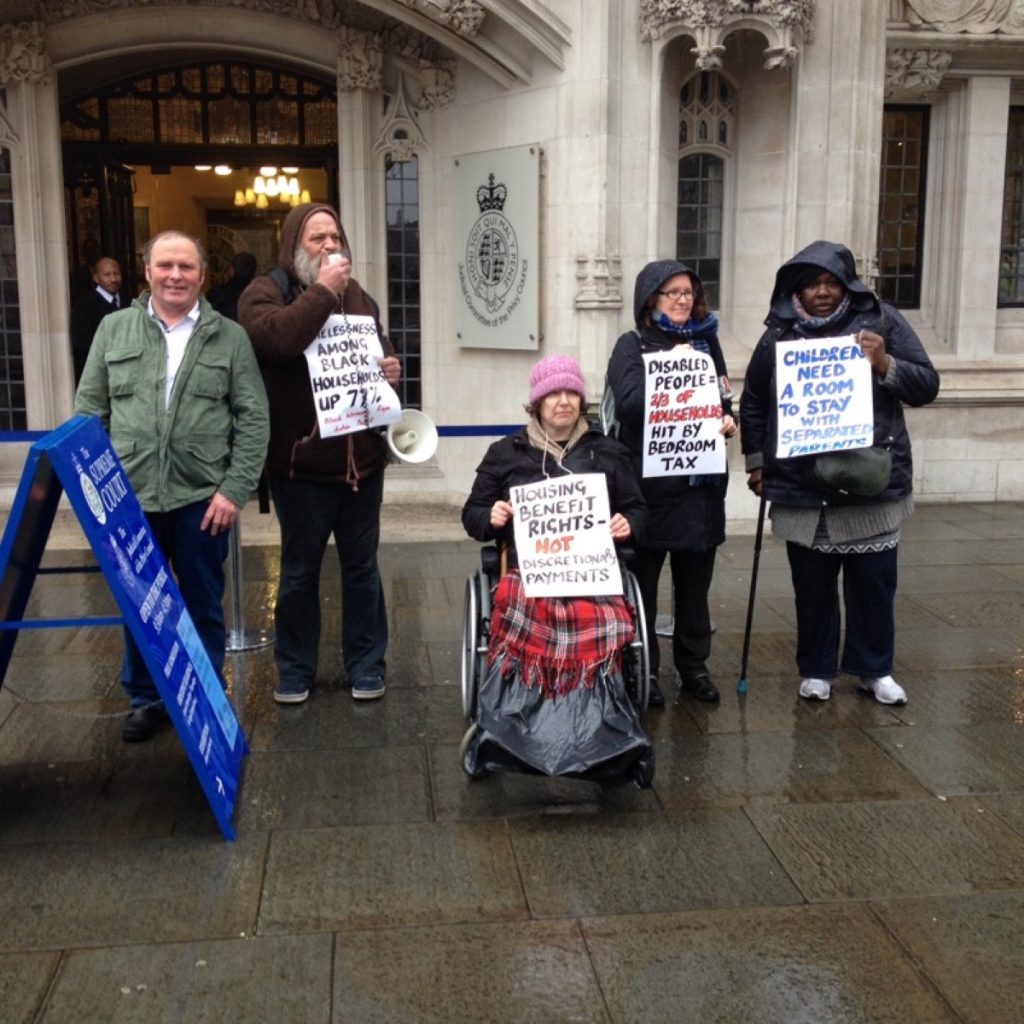IDS’ ‘compassionate’ department ignored cries for help for years
The last few days have been bittersweet for the disabled campaigners fighting against Iain Duncan Smith's welfare reforms.
Groups like Disabled People Against Cuts (DPAC), War on Welfare (WOW), and We Are Spartacus have spent years shouting about the impact changes to the welfare system were having on society's most vulnerable people. Until this weekend, the government refused to listen.
When disabled activists camped out in the grounds of Westminster to protest against cuts, they were ignored. When numerous reports and studies were published on the harm welfare reforms were having, they were dismissed. And when families tried to challenge the bedroom tax in the courts, the Department for Work and Pensions (DWP) fought them all the way. So it's hardly surprising many people are finding it hard to accept that IDS has suddenly found his conscience.
Catherine Hale has severe ME and Chronic Fatigue Syndrome. Back in 2011 she desperately wanted to return to work but needed intensive support. She is exactly the type of person the government claim they've been helping. But instead of getting the support she needed, she says the experience of being in the ESA Work Related Activity Group (WRAG) was so stressful that it affected both her physical and mental health.


"I was forced onto training courses that weren't adapted to my disability," she says. "And I had my benefits sanctioned for three months for not attending these courses, even though I told them they weren't accessible to me and had requested reasonable adjustments."
After three years in the WRAG, and with her health at risk, the DWP finally decided Hale was unable to work and moved her into the Support Group.
The proposed cuts to the Personal Independence Payment (PIP), which led to IDS' resignation, are just the latest in a series of hits on the disabled. The Independent Living Fund has been axed. The hated Work Capability Assessments have seen people with terminal illnesses being told they are fit for work. And sanctions have left the vulnerable relying on food banks to get by.
Pictures and videos from the week when IDS Resigned https://t.co/PjTYe6ibkY via @Dis_PPL_Protest pic.twitter.com/9NlpkgRoq0
— Anita Bellows (@AnitaBellows12) March 20, 2016
After feeling ignored for years, many disability campaigners are relieved that the issues are now finally being discussed.
"It's better late than never" Jayson Carmichael, who is a full time carer for his wife Charlotte, says. Charlotte has spina bifida and the couple are one of several families who recently challenged the government over the bedroom tax in the Supreme Court. Jayson says he was elated when he first heard about IDS' resignation and he is hoping MPs will now look again at some of their other cuts.
"I'm pleased that his resignation has highlighted how their policies have primarily hit the disabled, I hope they now think again on the bedroom tax as well."
Yesterday IDS' successor, Stephen Crabb, confirmed that cuts to PIP will be scrapped. It will be welcomed by those who were dreading yet another hit to their income, but the impact of welfare reforms is more than just financial. The whole process of applying, being assessed and then waiting for an outcome is a stressful experience and one which has caused great worry and upset for many of those caught up in the system.
"I need more support but I'm too frightened to ask, I couldn't bear the wait, appeals and the stress," Michelle Maher, a member of the WOW campaign, says. Maher has fibromyalgia, ME and neurological problems, and is currently on indefinite Disability Living Allowance (DLA). She has been suffering from breathing problems which have left her housebound. She knows she should be reassessed but says she is scared of losing the little support she already has.
She finds the idea of a compassionate Conservative party hard to swallow. "The departure of Iain Duncan Smith comes after six years of sheer hell and humiliation for disabled and sick people," she says. "That he has found a conscience I find hard to believe."
Crabb's first speech as work and pensions secretary in the Commons yesterday saw him say: "Behind every statistic there is a human being, and perhaps sometimes in government we forget that." It was a nice line but one which might have seemed cruelly ironic to disability campaigners. They've warned of the human impact the reforms were having for years. Ministers chose not to listen. The reports of suicides from people who were sanctioned were clearly not enough to remind them of the human cost of their policies.









